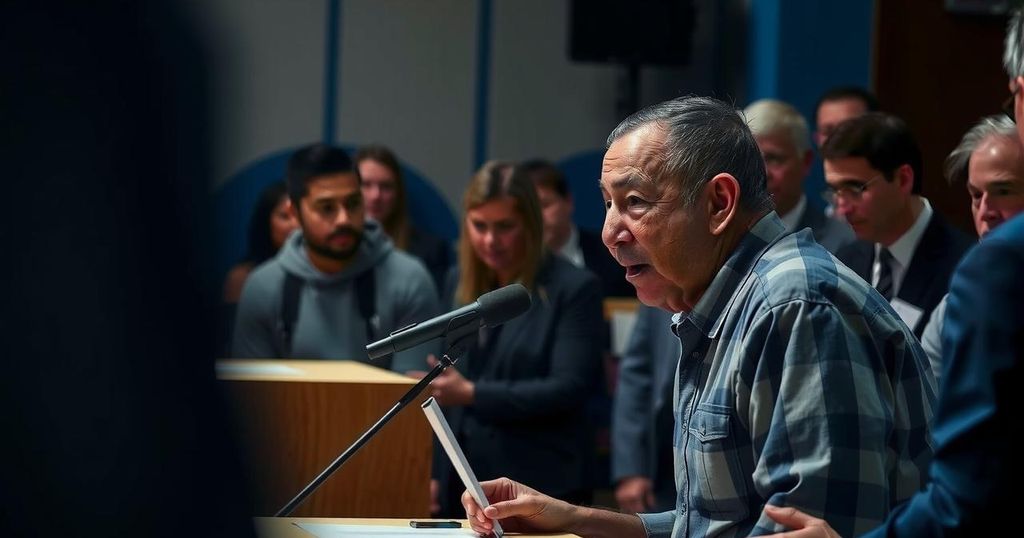Uruguay Prepares for Crucial Presidential Election Amidst Economic Stability
Uruguay is set for a closely watched second-round presidential election featuring Yamandu Orsi of the Broad Front against conservative Alvaro Delgado. The election, marked by relatively low tension compared to neighboring countries, is anticipated to be razor thin, with less than 25,000 votes potentially separating the candidates. Voter sentiment, economic conditions, and political dynamics all contribute to the intriguing electoral landscape as Uruguay heads to the polls.
In Uruguay, voters are preparing for a decisive second-round presidential election between center-left candidate Yamandu Orsi and conservative candidate Alvaro Delgado. Orsi, who leads the Broad Front, aims to continue a moderate policy agenda after receiving nearly 44% of the vote in October. Delgado, representing continuity, garnered support from the Colorado Party and secured approximately 27% of first-round votes. With an electorate of 3.4 million, the election promises to be closely contested, with recent polls indicating a tight race potentially decided by fewer than 25,000 votes.
Both candidates are vying for votes from around 8% of first-round supporters who favored smaller parties, yet recent polls suggest that neither has succeeded in presenting compelling new proposals to attract these voters. The broad political climate in Uruguay differs from other South American nations, fostering a lower level of tension and allowing both liberal and conservative factions to find common ground. This election thus signals the end of a significant electoral year in the region, as the long-standing popularity of President Lacalle Pou looms over Delgado’s campaign.
Ballot stations will open at 8 a.m. and close at 7:30 p.m. local time, with results expected shortly after. Amidst global trends of declining support for incumbent parties, Uruguay’s relatively stable economy may provide Delgado an advantage, suggesting voters are not seeking drastic political changes. As the nation heads towards this pivotal election, the outcomes could potentially challenge the international pattern of incumbent losses observed in recent months.
Uruguay’s political landscape is characterized by its unique stability and moderate approach. Historically, the country has avoided the intense ideological divides seen in its neighbors, prioritizing a collaborative governance style. The 2023 electoral cycle reflects this, as candidates from the Broad Front and Conservative parties compete under the shadow of an economically robust but globally fluctuating environment. This context is crucial in understanding voter behaviors and the potential influences on election outcomes, particularly amid concerns regarding inflation and the cost of living.
As Uruguay approaches its critical presidential runoff, the election results may indicate whether the nation will maintain its tradition of moderation or shift towards new political dynamics. The competition between Yamandu Orsi and Alvaro Delgado not only encapsulates the electoral hopes of their respective parties but also represents a pivotal moment reflecting broader trends within South America and beyond. Voter sentiments and economic conditions will undoubtedly play a significant role in determining the eventual outcome.
Original Source: www.ndtv.com




Post Comment